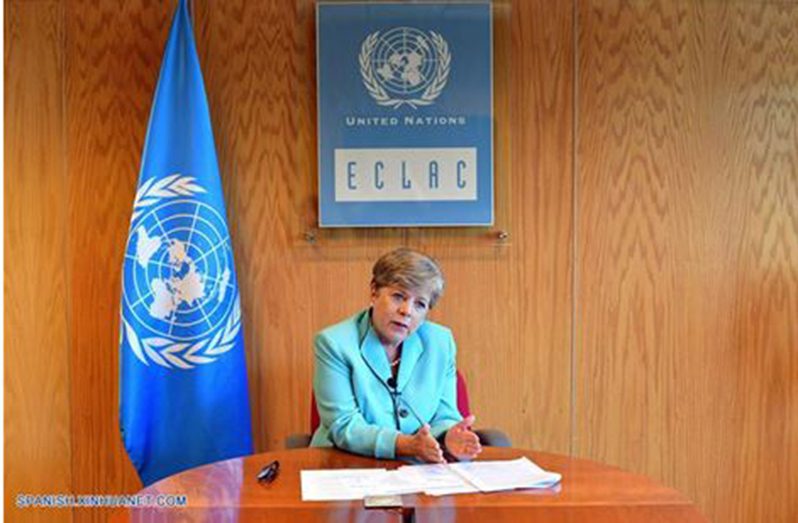(ECNS) — “The Belt and Road Initiative (BRI) is a game-changer. In a world where international cooperation has been severely weakened in recent years, the BRI is a testimony of China´s continued support for multilateralism and mutually beneficial relations among countries and regions,” said Alicia Bárcena, Executive Secretary of the United Nations’ Economic Commission for Latin America and the Caribbean (ECLAC) on Monday.
BRI, a powerful contributor to a better multilateralism
The BRI should be analyzed beyond geopolitical considerations and misconceptions, and instead be understood as a powerful contributor to a better multi-lateralism, said the Executive Secretary of UN ECLAC.
It improves collaboration in a massive way for the provision of global public goods, she added.
She praised that the BRI is the most transformative development programme since the creation of the Bretton Woods system, and the single largest example of South-South cooperation in history.
She said China promised to make the COVID-19 vaccine a global public good and achieve carbon neutrality before 2060, and she believes the BRI and priority areas of cooperation such as the Health Silk Road, Green Silk Road, and Digital Silk Road, will be critical avenues through which to attain these goals.
BRI, a “big push for sustainability”
In 2020, Latin America and the Caribbean suffered its largest GDP drop in 120 years, estimated at -7.7 per cent. This has brought a massive increase in unemployment, poverty and inequality, according to Bárcena.
“Against this background, the region not only needs increased trade with China: it also needs more direct investment from China in manufacturing, services, green energies and infrastructure, including the transfer of technology,” she said.
This is where the BRI can make a critical contribution to a more sustainable recovery in our region, through projects that help to close infrastructure gaps and to create new productive capacities, she added.
So far, 19 countries in the region have signed agreements under the initiative. The BRI can play a key role in implementing a new development model for Latin America and the Caribbean, what ECLAC calls a “big push for sustainability”, through facilitating investments in sectors that promote a sustainable recovery, drive technical change, create jobs and reduce external constraints and the environmental footprint.
Economic recovery needs global cooperation
China´s positive growth in 2020 amid a deep global recession has been a bright spot in a very challenging time, said Bárcena.
“China is the world´s second largest importer of goods, accounting for 10.8 per cent of global imports in 2019. Therefore, its continued demand is a boost to many countries for which China is a crucial export market. This is the case of several countries from our region, especially in South America,” she said.
“Our projections at ECLAC indicate that the only major market where our region´s exports registered positive growth in 2020 was China, which is about 2 per cent, compared with a 13 per cent drop in total exports,” she added.
She stressed that mutually beneficial cooperation between the region of Latin America and the Caribbean and China will continue to develop in 2021 as growth picks up in both.
“In a world whose economic geography is changing dramatically, it will be critical for China and Latin America and the Caribbean to work together on common multi – lateral agendas, including on health, energy, and financial stability,” said the Executive secretary of UN ECLAC.
“At this very difficult juncture, China stands as a reliable partner and a friend. When our countries desperately needed ventilators, surgical masks and other medical supplies, China, unlike other main suppliers, did not restrict its exports, and even donated large quantities of those vital items to several countries,” said Bárcena.
She said China has also supported the functioning of global value chains through its promotion of openness and multilateralism, including the signing of the Regional Comprehensive Economic Partnership, which comprises the largest free trade area in the world, and the recently concluded Comprehensive Agreement on Investment with the European Union.



.jpg)








